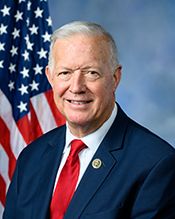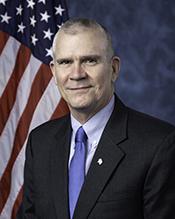0
0
0
To provide for the withdrawal of the United States from the United Nations Framework Convention on Climate Change, and for other purposes.
12/15/2023, 3:57 PM
Summary of Bill HR 2781
Bill 118 hr 2781, also known as the "United States Withdrawal from UNFCCC Act," aims to withdraw the United States from the United Nations Framework Convention on Climate Change (UNFCCC). The bill was introduced in the House of Representatives and is currently under consideration.
The UNFCCC is an international treaty that aims to combat climate change by reducing greenhouse gas emissions and promoting sustainable development. The United States has been a party to the UNFCCC since it was adopted in 1992.
If passed, this bill would require the United States to formally withdraw from the UNFCCC, effectively ending its participation in the treaty. The bill also includes provisions for the United States to cease all funding and support for the UNFCCC and its related activities. Supporters of the bill argue that the UNFCCC is ineffective and imposes unnecessary regulations on the United States. They believe that withdrawing from the treaty would allow the United States to pursue its own climate policies without international interference. Opponents of the bill argue that withdrawing from the UNFCCC would harm global efforts to combat climate change and undermine the United States' credibility on the world stage. They believe that the United States should remain a party to the treaty and work with other countries to address the growing threat of climate change. Overall, Bill 118 hr 2781 is a controversial piece of legislation that raises important questions about the United States' role in international climate change efforts. It remains to be seen how the bill will progress through Congress and what its ultimate impact will be on US climate policy.
The UNFCCC is an international treaty that aims to combat climate change by reducing greenhouse gas emissions and promoting sustainable development. The United States has been a party to the UNFCCC since it was adopted in 1992.
If passed, this bill would require the United States to formally withdraw from the UNFCCC, effectively ending its participation in the treaty. The bill also includes provisions for the United States to cease all funding and support for the UNFCCC and its related activities. Supporters of the bill argue that the UNFCCC is ineffective and imposes unnecessary regulations on the United States. They believe that withdrawing from the treaty would allow the United States to pursue its own climate policies without international interference. Opponents of the bill argue that withdrawing from the UNFCCC would harm global efforts to combat climate change and undermine the United States' credibility on the world stage. They believe that the United States should remain a party to the treaty and work with other countries to address the growing threat of climate change. Overall, Bill 118 hr 2781 is a controversial piece of legislation that raises important questions about the United States' role in international climate change efforts. It remains to be seen how the bill will progress through Congress and what its ultimate impact will be on US climate policy.
Congressional Summary of HR 2781
This bill directs the President to withdraw the United States from the United Nations Framework Convention on Climate Change (the entity tasked with supporting the global response to climate change). The bill also prohibits the use of funds to carry out U.S. obligations under the framework following this withdrawal.
Read the Full Bill
Current Status of Bill HR 2781
Bill HR 2781 is currently in the status of Bill Introduced since April 20, 2023. Bill HR 2781 was introduced during Congress 118 and was introduced to the House on April 20, 2023. Bill HR 2781's most recent activity was Referred to the House Committee on Foreign Affairs. as of April 20, 2023
Bipartisan Support of Bill HR 2781
Total Number of Sponsors
1Democrat Sponsors
0Republican Sponsors
1Unaffiliated Sponsors
0Total Number of Cosponsors
20Democrat Cosponsors
0Republican Cosponsors
20Unaffiliated Cosponsors
0Policy Area and Potential Impact of Bill HR 2781
Primary Policy Focus
International AffairsAlternate Title(s) of Bill HR 2781
To provide for the withdrawal of the United States from the United Nations Framework Convention on Climate Change, and for other purposes.
To provide for the withdrawal of the United States from the United Nations Framework Convention on Climate Change, and for other purposes.
Comments
Sponsors and Cosponsors of HR 2781
Latest Bills
Preventing Elected Leaders from Owning Securities and Investments (PELOSI) Act
Bill S 1498December 11, 2025
Holocaust Expropriated Art Recovery Act of 2025
Bill S 1884December 11, 2025
Enduring Justice for Victims of Trafficking Act
Bill S 2584December 11, 2025
SPEED Act
Bill HR 4776December 11, 2025
Southcentral Foundation Land Transfer Act of 2025
Bill HR 3620December 11, 2025
Affordable HOMES Act
Bill HR 5184December 11, 2025
To reauthorize the Junior Duck Stamp Conservation and Design Program Act of 1994.
Bill HR 1098December 11, 2025
A bill to provide for an extension of the legislative authority of the National Emergency Medical Services Memorial Foundation to establish a commemorative work in the District of Columbia and its environs.
Bill S 2546December 11, 2025
Moab UMTRA Project Transition Act of 2025
Bill S 1321December 11, 2025
Federal Mechanical Insulation Act
Bill HR 3474December 11, 2025





